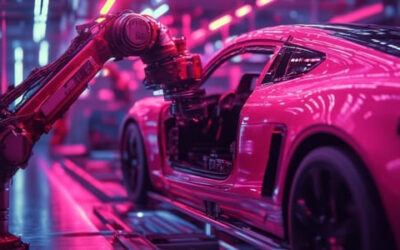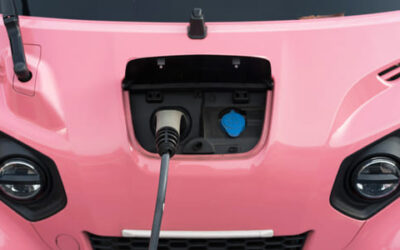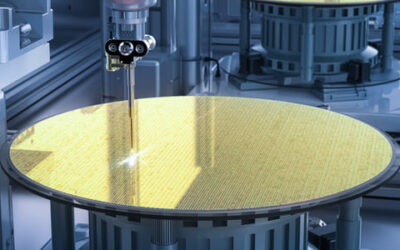Bridging Health and Sustainability: ISO 13485 Meets Climate Change
In February 2024, a quiet but powerful shift rippled through the world of quality management systems. The International Organization for Standardization (ISO) introduced a climate change amendment across more than 30 management system standards — including ISO 13485, the globally recognized standard for medical device quality management systems.
While ISO 13485 has long focused on safety, reliability, and regulatory compliance in the medical device sector, this amendment introduces a new dimension: sustainability.

What Changed?
In early 2024, the International Organization for Standardization (ISO) issued a climate change amendment that quietly reshaped the expectations for how organizations approach environmental issues within their management systems. Though the language of the amendment is brief — just two new sentences — it represents a significant shift in how standards like ISO 13485 are interpreted and implemented.
Clause 4.1: Understanding the Organization and Its Context
The organization shall determine whether climate change is a relevant issue.
This line introduces a new requirement: organizations must proactively evaluate the relevance of climate change to their operations, rather than assuming it’s irrelevant or out of scope. For companies certified to ISO 13485, this means considering whether climate-related factors — such as extreme weather, resource scarcity, or carbon regulations — could influence their ability to maintain quality and compliance in medical device manufacturing or service delivery.
This change reframes climate change from being an optional sustainability add-on to a strategic business consideration. It invites organizations to think about climate risk alongside other external factors, like market dynamics or regulatory changes. For example, if a medical device company’s sterilization facility is located in a region prone to flooding, or if global supply chains are vulnerable to temperature-sensitive logistics, these are now part of the contextual analysis required under Clause 4.1.
Clause 4.2: Understanding the Needs and Expectations of Interested Parties
Relevant interested parties can have requirements related to climate change.
This addition broadens the scope of stakeholder analysis. Organizations are now expected to recognize that customers, regulators, investors, and even patients may have climate-related expectations that could affect the QMS. Hospitals and procurement bodies may request carbon footprint data. Regulatory authorities may begin incorporating environmental impact into product approval or post-market surveillance. Investors increasingly consider environmental, social, and governance (ESG) metrics when evaluating companies.
In short, the QMS can no longer be developed in a vacuum. Climate change is not just an environmental concern — it’s also a business driver, influencing stakeholder demands and shaping how organizations demonstrate accountability and transparency.
A Small Edit with Big Implications
Though these changes appear modest on the surface, they signal a major evolution in ISO’s philosophy: climate change is now seen as a strategic factor that affects quality, risk, and resilience — even in highly regulated, safety-critical sectors like medical devices. ISO is asking organizations to adopt a broader, more future-focused mindset.
For companies already certified to ISO 13485, this means taking a fresh look at their contextual analysis, stakeholder engagement, and risk management processes. While not every company will find climate change to be a material issue, ISO now requires that the consideration itself is documented and justified.
In a world where environmental conditions are rapidly shifting, this amendment helps ensure that quality systems are not only reactive and compliant — but also resilient and forward-thinking.
Why It Matters for Medical Device Manufacturers
The medical device industry is synonymous with innovation, precision, and the unwavering commitment to patient safety. For decades, companies operating in this space have focused on meeting rigorous regulatory standards, ensuring product quality, and driving technological advancement. But the world is changing — and fast. As climate change accelerates and environmental challenges intensify, the industry is being asked to broaden its perspective. The new climate change amendment to ISO 13485 is a reflection of this shift, urging manufacturers to look beyond compliance and consider their role in promoting global resilience and environmental responsibility.
Here’s why this shift is important:
- 🌡️ Climate risks can disrupt supply chains, especially those dependent on global vendors or sensitive materials.
- 🌍 Regulatory bodies and healthcare providers are prioritizing sustainability in procurement decisions.
- 🔍 Stakeholders increasingly demand transparency in environmental performance, including carbon footprint and energy use.
🌡️ Supply Chain Vulnerabilities Are Increasing
Medical device production often relies on complex, global supply chains, involving specialized components, sterile environments, and just-in-time delivery systems. These supply chains are becoming increasingly vulnerable to climate-related disruptions: extreme weather events, wildfires, rising sea levels, and transportation delays caused by heatwaves or floods.
A single climate-related disruption — such as a hurricane damaging a critical supplier’s facility or an unexpected drought halting the availability of a necessary raw material — can have cascading effects on product availability, manufacturing timelines, and ultimately, patient care. Recognizing these risks within your QMS, as prompted by the ISO amendment, isn’t just good practice; it’s an essential step toward business continuity and operational resilience.
🌍 Sustainability Is Becoming a Procurement Priority
Governments, hospitals, and healthcare providers are increasingly embedding sustainability into procurement decisions. Green public procurement policies and hospital sustainability initiatives are gaining traction around the world, particularly in Europe and North America. Medical device companies that can demonstrate environmental stewardship — from low-emission operations to responsible sourcing — are better positioned to win contracts and maintain long-term partnerships.
With the new ISO language encouraging organizations to consider climate-related requirements of interested parties, environmental performance becomes a competitive differentiator, not just a regulatory afterthought. Companies that lead on sustainability will be favored in procurement processes where climate-conscious decision-making is the norm.
🔍 Stakeholder Expectations Are Evolving
Investors, consumers, regulators, and employees are all paying closer attention to a company’s environmental, social, and governance (ESG) performance. Medical device manufacturers are no exception. Today’s stakeholders expect transparency around emissions, energy use, waste management, and climate-related risks.
Incorporating climate change into your QMS helps align internal practices with these expectations. It allows your organization to track environmental performance, identify opportunities for improvement, and report data that matters to both regulators and the market. More importantly, it helps future-proof your organization against the growing tide of climate disclosure regulations.
✅ Building a Resilient, Forward-Thinking Organization
Adding climate considerations to your ISO 13485 QMS isn’t about checking a box or appeasing a trend. It’s about future-proofing your business in a world where environmental instability is becoming the norm. It’s about anticipating risks before they become crises, and responding to stakeholder demands with transparency and accountability.
Ultimately, it’s about bridging health and sustainability — because delivering safe, effective medical devices also means ensuring the systems that produce and deliver them can withstand the challenges of tomorrow.
What Organizations Should Do Now
With the climate change amendment now formally part of ISO 13485, medical device manufacturers need to take action — not just to stay compliant, but to build a more resilient, informed, and sustainable quality management system (QMS). While the changes to Clause 4.1 and 4.2 may seem minor in terms of wording, they require meaningful internal reflection, documentation, and potential process updates.
Here’s what organizations should focus on to respond effectively:
Revisit the Context of the Organization (Clause 4.1)
The first step is to update your analysis of the organization’s context. This means asking a critical question: Is climate change a relevant issue for us? The answer will vary depending on your location, products, suppliers, infrastructure, and customer expectations.
Even if your operations seem insulated from direct climate risks, indirect factors — such as energy costs, supply chain reliability, or investor concerns — may still make climate change relevant. If climate change is deemed not relevant, that judgment needs to be justified and documented.
If it is relevant, you should:
- Identify specific climate-related risks or opportunities (e.g., flooding risk at facilities, rising logistics costs).
- Integrate these into your existing risk-based thinking frameworks.
- Flag climate change as part of strategic discussions during management reviews.
Update Stakeholder Analysis (Clause 4.2)
Clause 4.2 now states that interested parties may have requirements related to climate change. Organizations must identify and review these evolving expectations. Stakeholders may include:
- Healthcare providers asking for greener packaging or low-carbon products.
- Regulators hinting at future climate disclosure obligations.
- Investors applying ESG (Environmental, Social, Governance) criteria.
- Employees pushing for sustainability commitments.
Map these climate-related expectations as part of your stakeholder analysis. For each group, ask: What climate-related expectations might they have? Are we meeting them?
This helps ensure your QMS reflects not just technical compliance, but also real-world accountability to those you serve and partner with.
Integrate Findings into Your QMS
Once you’ve assessed context and stakeholders, any relevant climate considerations should be embedded into your QMS processes, including:
- Risk management (Clause 6.1): Add climate-related risks to your risk register.
- Objectives and planning (Clause 6.2): Consider setting goals related to sustainability or climate resilience.
- Supplier management: Evaluate vendor exposure to climate risks or their own sustainability practices.
- Management review (Clause 9.3): Ensure climate relevance and stakeholder expectations are discussed at the top level.
Even if your findings are minimal today, this integration creates a framework for future updates as climate-related pressures evolve.
Train, Communicate, Document
Finally, ensure your team understands the new requirements. Conduct brief awareness sessions with quality and compliance teams. Update internal documents (like your Quality Manual or risk assessments) to reflect the climate consideration clause. This shows both auditors and stakeholders that you’re proactively responding to the amendment.
Conclusion
In 2024, ISO introduced a climate change amendment to ISO 13485, requiring organizations to assess whether climate change is a relevant issue and to consider related stakeholder expectations. Though the changes are brief — just two sentences added to Clause 4 — they mark a significant shift in how medical device manufacturers must approach quality management.
Climate risks like supply chain disruptions, evolving procurement criteria, and increasing stakeholder demands for sustainability are now strategic concerns. Medical device companies must revisit their organizational context, update stakeholder analyses, and integrate climate-related risks into their QMS processes.
By responding thoughtfully to the amendment, manufacturers not only remain compliant but also position themselves as resilient, responsible leaders in a health sector increasingly shaped by environmental challenges.
References
- ISO Official Announcement (2024) – Climate Change Amendment – The International Organization for Standardization announced the inclusion of climate change considerations in over 30 ISO management system standards, including ISO 13485.
- ISO 13485:2016 – Medical Devices – Quality Management Systems – Requirements for Regulatory Purposes
- ISO Guidance on Climate Change and Management Systems – Supporting documents and webinars from ISO committees (e.g., ISO/TC 210, ISO/TMB) explaining how organizations should interpret and implement the amendment.
- European Commission – Green Public Procurement in Healthcare – Highlights increasing sustainability requirements in medical device procurement across Europe.
- UN Environment Programme – Global Supply Chain Risk & Climate Impact Reports – Research on how climate change affects global supply chains, especially in manufacturing and healthcare sectors.
- World Economic Forum & McKinsey Reports on ESG and Medical Devices – Reports on the rising importance of ESG (Environmental, Social, Governance) in the medical technology and healthcare sectors.
Wanna know more? Let's dive in!
[dsm_gradient_text gradient_text="The Cobot Conundrum: How AI is Rewriting the Rules of Robot Safety in the Age of Recycling" _builder_version="4.27.5" _module_preset="default" header_font="Questrial|||on|||||" header_text_align="center" header_letter_spacing="5px"...
Newsletter 2
[dsm_gradient_text gradient_text="Ms Matter Newsletter 2026 #1" _builder_version="4.27.4" _module_preset="default" header_font="Questrial|||on|||||" header_text_align="center" header_font_size="36px" header_letter_spacing="5px" filter_hue_rotate="100deg"...
Your AI Ready for the Future? Inside the New AI Maturity Model
[dsm_gradient_text gradient_text="Your AI Ready for the Future? Inside the New AI Maturity Model" _builder_version="4.27.0" _module_preset="default" header_font="Questrial|||on|||||" header_text_align="center" header_letter_spacing="5px" filter_hue_rotate="100deg"...
Cooling the Future: How AI Makes Data Centers Greener
[dsm_gradient_text gradient_text="Cooling the Future: How AI Makes Data Centers Greener" _builder_version="4.27.0" _module_preset="default" header_font="Questrial|||on|||||" header_text_align="center" header_letter_spacing="5px" filter_hue_rotate="100deg"...
When Cars Became Code: How AI is Redefining Automotive Production
[dsm_gradient_text gradient_text="When Cars Became Code: How AI is Redefining Automotive Production" _builder_version="4.27.0" _module_preset="default" header_font="Questrial|||on|||||" header_text_align="center" header_letter_spacing="5px" filter_hue_rotate="100deg"...
Supercharged Smarts: How AI Is Rewiring Electric Vehicle Batteries
[dsm_gradient_text gradient_text="Supercharged Smarts: How AI Is Rewiring Electric Vehicle Batteries" _builder_version="4.27.0" _module_preset="default" header_font="Questrial|||on|||||" header_text_align="center" header_letter_spacing="5px" filter_hue_rotate="100deg"...
New Zealand 2025
Duration: 2 weeks Cities: Christchurch, Hokitika, Kaikōura, Westport, Te Waipounamu, Nelson, Timaru Miles Travelled: 30 000Traveling through parts of New Zealand’s South Island offers a rich tapestry of history, landscape, and local character that leaves a quiet...
Resolving Die Peel Issues in an Automotive & Aerospace Electronics Manufacturing Plant
Background A global electronics manufacturer supplying critical components to the automotive and aerospace industries received multiple customer complaints regarding the premature failure of transistor-based power modules. Field analysis revealed that the root cause...
Transforming a Dysfunctional Quality Team in Automotive and Aerospace Manufacturing
Background The quality department of a Tier-1 manufacturer in the automotive and aerospace sectors was expected to ensure strict compliance to both customer and regulatory standards. Instead, it became a bottleneck plagued by poor collaboration, low morale, and high...
Resolving Customer Complaints Related to Electrical Connector Module Failures
Background ElectroTech, a manufacturer of electrical distribution components, including connector modules for power systems, received a major customer complaint regarding intermittent connection failures in one of its core electric product lines. The failures led to...
Singapore 2019
Duration: 3 days Cities: Singapore Miles Travelled: 6,300Visiting Singapore was like stepping into the future while still being surrounded by rich history and culture. From the moment I arrived at Changi Airport, with its indoor waterfalls and lush gardens, I knew...
Hawaii 2015
Duration: 2 weeks Cities: Honolulu Miles Travelled: 7,000Our trip to Hawaii was truly a once-in-a-lifetime experience, filled with breathtaking landscapes, warm hospitality, and unforgettable moments. We stayed in Honolulu on the island of Oahu, where the vibrant mix...










